.thumb.jpg.a858dd42891f6e0a00aae90a411db6b3.jpg)
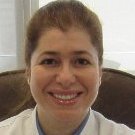
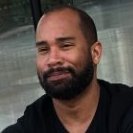
Showing content with the highest reputation since 04/26/2023 in all areas
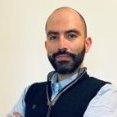
Sai Lavanya Patnala and 4 others reacted to Diego Rolando Hernández Espinosa for a topic
.thumb.jpg.a858dd42891f6e0a00aae90a411db6b3.jpg)
Sai Lavanya Patnala and 4 others reacted to Hugo Sanchez-Castillo for a topic
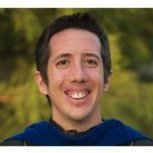
Sai Lavanya Patnala and 4 others reacted to Brandon Coventry for a topic

Sai Lavanya Patnala and 3 others reacted to Daisy Gallardo for a topic

Sai Lavanya Patnala and 3 others reacted to valeria muoio for a topic

Japhet Kineze and 2 others reacted to valeria muoio for a topic
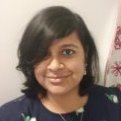
Bianca Williams and 2 others reacted to Jayalakshmi Viswanathan for a topic
.thumb.jpg.a858dd42891f6e0a00aae90a411db6b3.jpg)
Sai Lavanya Patnala and 2 others reacted to Hugo Sanchez-Castillo for a topic

Bianca Williams and 2 others reacted to Diego Rolando Hernández Espinosa for a topic

Japhet Kineze and 2 others reacted to Brandon Coventry for a topic
.thumb.jpg.a858dd42891f6e0a00aae90a411db6b3.jpg)
Sam Staples and 2 others reacted to Hugo Sanchez-Castillo for a topic
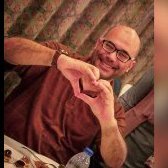
Bianca Williams and 2 others reacted to Wael Mohamed for a topic
Hugo Sanchez-Castillo and 2 others reacted to Julia Araujo for a topic

Bianca Williams and one other reacted to Daisy Gallardo for a topic

Bianca Williams and one other reacted to Jayalakshmi Viswanathan for a topic

Hugo Sanchez-Castillo and one other reacted to Jayalakshmi Viswanathan for a topic

Hugo Sanchez-Castillo and one other reacted to valeria muoio for a topic

Sai Lavanya Patnala and one other reacted to Daisy Gallardo for a topic
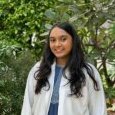
Bianca Williams and one other reacted to Sai Lavanya Patnala for a topic

Bianca Williams and one other reacted to Jayalakshmi Viswanathan for a topic

Bianca Williams and one other reacted to Brandon Coventry for a topic
.thumb.jpg.a858dd42891f6e0a00aae90a411db6b3.jpg)
Bianca Williams and one other reacted to Hugo Sanchez-Castillo for a topic
Bianca Williams and one other reacted to Julia Araujo for a topic

Julia Araujo and one other reacted to valeria muoio for a topic
.thumb.jpg.a858dd42891f6e0a00aae90a411db6b3.jpg)
Julia Araujo and one other reacted to Hugo Sanchez-Castillo for a topic

Julia Araujo and one other reacted to Mathew Abrams for a topic
Bianca Williams and one other reacted to Srikanth Ramaswamy for a topic
.thumb.jpg.a858dd42891f6e0a00aae90a411db6b3.jpg)
Julia Araujo and one other reacted to Hugo Sanchez-Castillo for a topic

Sam Staples and one other reacted to Mathew Abrams for a topic

Julia Araujo and one other reacted to Mathew Abrams for a topic
.thumb.jpg.a858dd42891f6e0a00aae90a411db6b3.jpg)
Sam Staples and one other reacted to Hugo Sanchez-Castillo for a topic
.thumb.jpg.a858dd42891f6e0a00aae90a411db6b3.jpg)
Bianca Williams and one other reacted to Hugo Sanchez-Castillo for a topic
Bianca Williams and one other reacted to Julia Araujo for a topic
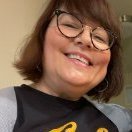
Bianca Williams and one other reacted to Kristen Ashley Horner for a topic
.thumb.jpg.a858dd42891f6e0a00aae90a411db6b3.jpg)
Bianca Williams and one other reacted to Hugo Sanchez-Castillo for a topic
.thumb.jpg.a858dd42891f6e0a00aae90a411db6b3.jpg)
Bianca Williams reacted to Hugo Sanchez-Castillo for a topic
.thumb.jpg.a858dd42891f6e0a00aae90a411db6b3.jpg)
Sam Staples reacted to Hugo Sanchez-Castillo for a topic

Sam Staples reacted to valeria muoio for a topic
Bianca Williams reacted to Sam Staples for a topic
Bianca Williams reacted to Sam Staples for a topic
Julia Araujo reacted to Sam Staples for a topic
Bianca Williams reacted to Julia Araujo for a topic
Bianca Williams reacted to Sam Staples for a topic

Sam Staples reacted to valeria muoio for a topic

Julia Araujo reacted to Mathew Abrams for a topic
Hugo Sanchez-Castillo reacted to Julia Araujo for a topic

Sam Staples reacted to Mathew Abrams for a topic
Sam Staples reacted to Julia Araujo for a topic

Bianca Williams reacted to Mathew Abrams for a topic
Bianca Williams reacted to Lalitha Devi Mallarapu for a topic
